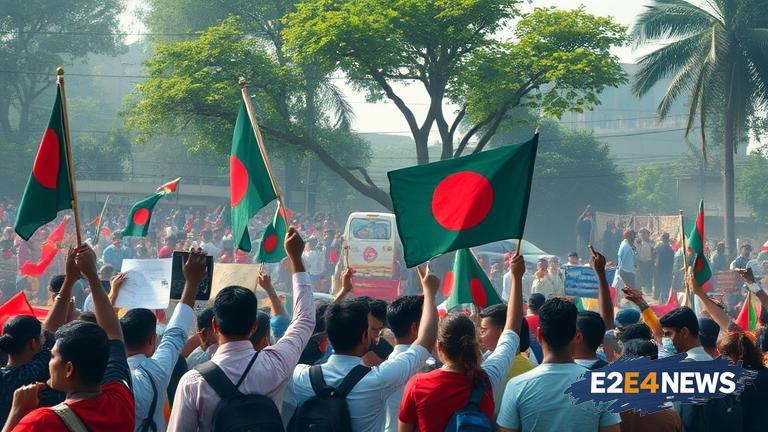The student protests in Bangladesh, which began in response to a road accident that killed two students, have sparked widespread outrage and criticism of the government’s handling of the situation. The protests, which started on July 29, 2018, were initially peaceful but turned violent after police used tear gas and batons to disperse the crowds. The government has been accused of using excessive force and suppressing free speech, with many students and activists being arrested and detained. The protests have also highlighted the country’s poor road safety record, with many calling for improved infrastructure and stricter traffic laws. The government has promised to take action to address the concerns of the protesters, but many are skeptical of its commitment to reform. The opposition party, the Bangladesh Nationalist Party (BNP), has criticized the government’s handling of the situation, accusing it of being heavy-handed and authoritarian. The protests have also sparked a wider debate about the state of democracy in Bangladesh, with many arguing that the government is becoming increasingly authoritarian. The international community has also expressed concern about the situation, with the United Nations and human rights groups calling for restraint and respect for human rights. Despite the criticism, the government has shown no signs of backing down, with the Prime Minister, Sheikh Hasina, accusing the protesters of being ‘paid agents’ of the opposition. The situation remains tense, with many fearing that the protests could escalate into further violence. The government’s response to the protests has also been criticized by the media, with many outlets being shut down or blocked for covering the protests. The protests have also had an impact on the country’s economy, with many businesses being forced to close due to the unrest. The government has promised to compensate those affected by the protests, but many are still waiting for assistance. The situation in Bangladesh is a complex one, with many different factors at play. The government’s handling of the protests has been widely criticized, and it remains to be seen how the situation will unfold. The international community will be watching closely, and it is likely that the situation will have significant implications for the country’s future. The protests have also highlighted the importance of free speech and the right to protest, with many arguing that these rights are essential for a healthy democracy. The government’s response to the protests has also raised questions about the role of the police and the military in maintaining order, with many arguing that they should be accountable to the people, not just the government.
